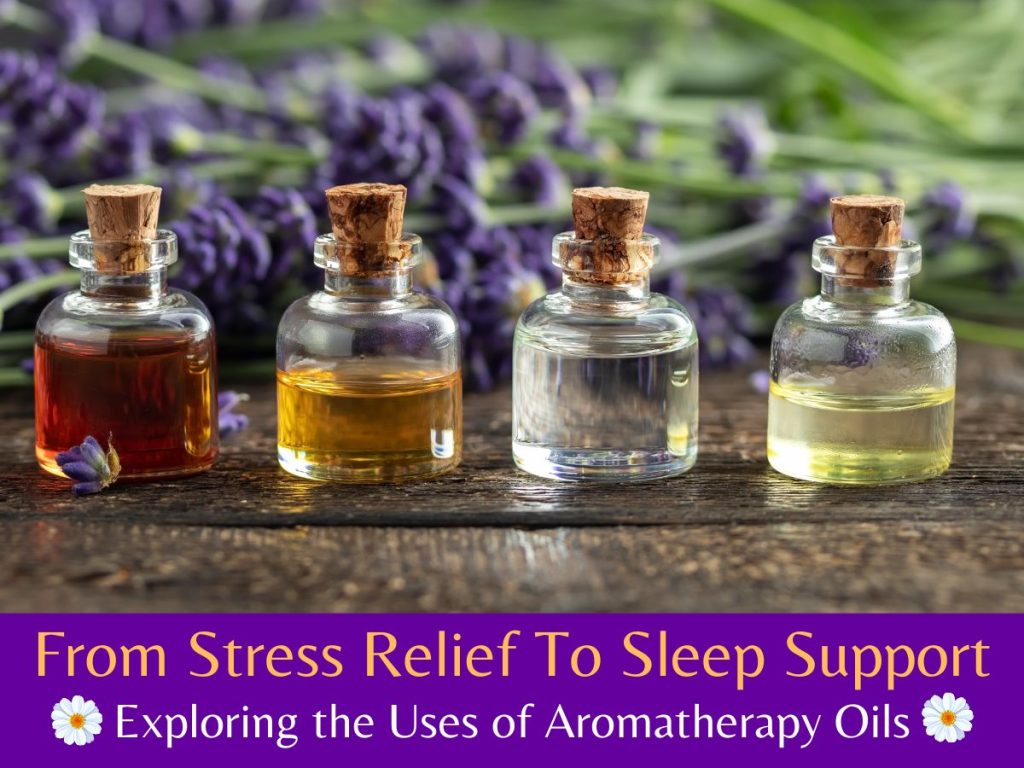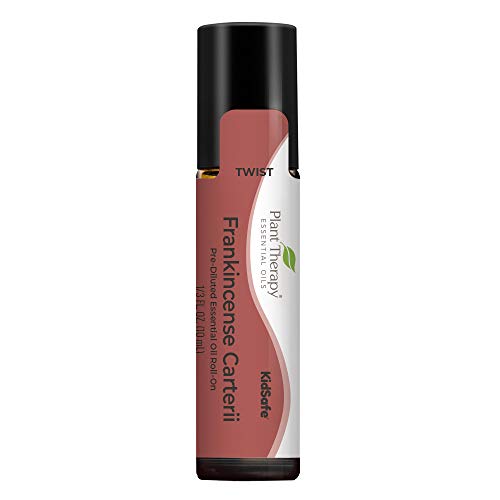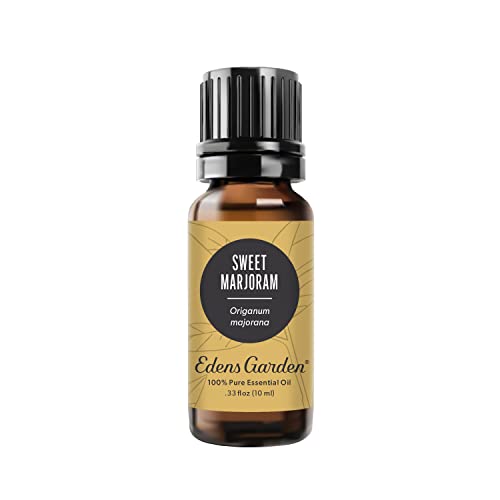DISCLOSURE: This post may contain affiliate links, which means we may receive a commission from Amazon or other affiliate partners if you make a purchase using these links. This is at no extra cost to you. For more information, please read our full Affiliate Disclosure.
Are you seeking natural ways to find relief from stress and improve your sleep? Look no further than the power of aromatherapy oils. Aromatherapy is a holistic wellness practice that uses aromatic plant extracts, commonly in the form of essential oils, to promote total well-being. It has been practiced for centuries and is known for its therapeutic benefits.
Aromatherapy oils, such as lavender, chamomile, and bergamot, are known for their calming properties, making them excellent choices for reducing stress and anxiety. Inhaling these oils or using them in massages can help promote relaxation and induce a sense of calm.
Furthermore, aromatherapy oils can aid in improving sleep quality. Many essential oils have sedative effects and can help you unwind before bedtime. By diffusing oils like lavender or vetiver in your bedroom, you can create a soothing and relaxing environment that promotes a restful night’s sleep.
In this article, we will explore the various uses of aromatherapy oils, from stress relief to sleep support. Whether you’re dealing with stress or struggling to get a good night’s sleep, essential oils may offer a natural and effective solution. Join us as we delve into the world of aromatherapy and explore the diverse uses of these powerful essential oils.
The history and origins of aromatherapy
Aromatherapy has a rich history that dates back thousands of years. Ancient civilizations, such as the Egyptians, Greeks, and Romans, were among the first to recognize the healing properties of plants and their oils. The Egyptians used aromatic oils in religious ceremonies and embalming practices, while the Greeks and Romans utilized them for medicinal purposes.
The term “aromatherapy” was coined in the 20th century by a French chemist named René-Maurice Gattefossé. Gattefossé discovered the healing properties of lavender oil after using it to treat a burn on his hand. This incident led to further research on the therapeutic benefits of essential oils and the development of modern aromatherapy practices.
How do aromatherapy oils work?
The effectiveness of aromatherapy oils lies in their ability to stimulate the olfactory system (sense of smell), which is connected to the brain’s limbic system. The limbic system plays a crucial role in regulating emotions, memory, and behavior. When you inhale essential oils, the molecules enter your nose and travel to the limbic system, triggering various physiological and psychological responses.
Different types of aromatherapy oils contain different chemical compounds that produce specific effects. For example, lavender oil contains linalool and linalyl acetate, which have sedative and anxiolytic properties. On the other hand, citrus oils like bergamot and sweet orange contain limonene, a compound known for its uplifting and mood-enhancing effects.
What are good quality essential oils?
Signs of good quality essential oils are: certified organic, 100 percent pure, therapeutic, and non-GMO (genetically modified organism). Genuine oils have a characteristic aroma, consistent color, and viscosity. They are stored in dark glass bottles to prevent light degradation and may come with third-party testing certificates. Established brands with positive reputations are generally more reliable. Extremely low prices can be a red flag, and it’s crucial to follow recommended guidelines when using these potent substances.
Choose a reputable supplier carefully. Some popular and reputable brands include Plant Therapy, Edens Garden, Young Living, Simply Earth, NOW, and Revive Essential Oils. Most of these suppliers sell via Amazon. Alternatively, you can buy directly from their stores.
Different types of aromatherapy oils and their uses
Aromatherapy oils come in a wide variety, each with its unique properties and benefits. Let’s explore some of the most popular types of essential oils and their uses:
Lavender Oil
Lavender oil is one of the most versatile and widely used essential oils. It is known for its calming and soothing effects, making it an excellent choice for stress relief and relaxation. Inhaling lavender oil or applying it topically can help reduce anxiety, promote better sleep, and relieve headaches.
Chamomile Oil
Chamomile oil is another popular choice for its calming properties. It is often used to alleviate anxiety, promote relaxation, and improve sleep quality. Chamomile oil can be diffused, applied topically, or added to bathwater for a soothing and comforting experience.
Bergamot Oil
Bergamot oil is derived from the rinds of bergamot oranges and is known for its uplifting and mood-enhancing effects. It has a citrusy and refreshing aroma that can help relieve stress, anxiety, and depression. Bergamot oil can be diffused, added to massage oils, or used in skincare products.
Aromatherapy oils for stress relief
One of the primary uses of aromatherapy oils is stress relief. The soothing properties of certain essential oils can help reduce stress and anxiety, allowing you to relax and unwind. Here are some of the best essential oils for stress relief:
Ylang Ylang Oil
Ylang ylang oil has a sweet and floral scent that is known for its ability to reduce stress and promote relaxation. It can help lower blood pressure, slow down heart rate, and induce a sense of tranquility. Ylang ylang oil can be diffused or added to bathwater for a luxurious and stress-relieving experience.
Frankincense Oil
Frankincense oil has been used for centuries for its grounding and calming effects. It can help reduce anxiety, promote deep breathing, and enhance spiritual well-being. Frankincense oil can be inhaled, applied topically, and also used in meditation practices to relieve stress and promote a sense of inner peace.
Vetiver Oil
Vetiver oil is known for its earthy and grounding aroma. It has a calming and soothing effect on the mind and body, making it an excellent choice for stress relief. Vetiver oil can be diffused, added to massage oils, or used in bath products to promote relaxation and reduce anxiety.
Aromatherapy oils for sleep support
Another compelling us is for sleep support. If you’re struggling with sleep issues, aromatherapy oils can offer a natural and effective solution. Many essential oils have sedative properties that can help calm the mind and promote a restful night’s sleep. Here are some essential oils that can support better sleep:
Roman Chamomile Oil
Roman chamomile oil is known for its gentle and calming effects. It can help reduce insomnia, anxiety, and restlessness, allowing you to achieve deep and uninterrupted sleep. Roman chamomile oil can be diffused, added to a warm bath, or used in a bedtime massage oil to promote relaxation and improve sleep quality.
Sandalwood Oil
Sandalwood oil has a warm and woody scent that is known for its sedative properties. It can help calm the mind, reduce anxiety, and promote a sense of peace. Sandalwood oil can be diffused, inhaled, or applied topically to the skin to support a peaceful and restorative sleep.
Marjoram Oil
Marjoram oil is often referred to as the “herb of happiness” due to its calming and comforting effects. It can help reduce insomnia, ease muscle tension, and promote relaxation. Marjoram oil can be diffused, added to a warm bath, or used in a bedtime massage oil to support a good night’s sleep.
Aromatherapy oils for relaxation
In addition to stress relief and sleep support, essential oils can also be used for general relaxation. Whether you need to unwind after a long day or create a calming atmosphere in your home, certain essential oils can help you relax and find inner peace. Here are a few oils known for their relaxation properties:
Patchouli Oil
Patchouli oil has a rich and earthy aroma that is often associated with relaxation and meditation. It can help calm the mind, reduce anxiety, and promote a sense of grounding. Patchouli oil can be diffused, added to bath products, or used in massage oils to create a relaxing and tranquil environment.
Clary Sage Oil
Clary sage oil is known for its calming effects. It can help reduce stress, promote relaxation, and enhance feelings of well-being. Clary sage oil can be diffused, inhaled, or added to bathwater for a soothing and uplifting experience.
Neroli Oil
Neroli oil is derived from the blossoms of the bitter orange tree and has a sweet and floral scent. It is another oil known for its calming and uplifting effects on the mind and body. Neroli oil can help reduce anxiety, promote relaxation, and improve mood. It can be diffused, applied topically, or used in skincare products for a luxurious and relaxing experience.
Aromatherapy oils for mood enhancement
In addition to their relaxation and stress-relieving properties, aromatherapy oils can also be used to enhance mood and uplift the spirit. Certain essential oils have uplifting and energizing effects that can help improve your overall well-being. Here are a few essential oils known for their mood-enhancing properties:
Sweet Orange Oil
Sweet orange oil has a bright and citrusy aroma that is known for its uplifting effects. It can help boost mood, reduce anxiety, and promote a sense of joy. Sweet orange oil can be diffused, inhaled, or added to skincare products for a refreshing and invigorating experience.
Peppermint Oil
Peppermint oil has a cool and minty scent that is known for its energizing and revitalizing effects. It can help improve focus, increase mental clarity, and also enhance mood. Peppermint oil can be diffused, inhaled, or added to massage oils for a refreshing and uplifting experience.
Rosemary Oil
Last but not least is Rosemary oil. Rosemary oil has a fresh and herbaceous scent that is known for its stimulating and uplifting effects. It can help improve mental alertness, boost mood, and enhance memory. Rosemary oil can be diffused, inhaled, or added to bath products for a rejuvenating and invigorating experience.
Safety precautions and guidelines for using aromatherapy oils
While essential oils can offer numerous benefits, it is important to use them safely and responsibly. Here are some safety precautions and guidelines to keep in mind when using aromatherapy oils
- Always dilute essential oils before skin application to prevent irritation from their high concentration.
- Test new essential oils with a patch test: apply a diluted amount to a small skin area, wait 24 hours, and check for adverse reactions.
- Adhere to recommended dilution ratios when blending or incorporating essential oils into skincare products.
- Refrain from ingesting essential oils unless guided by a qualified aromatherapist or healthcare professional.
- Preserve the potency and shelf life of essential oils by storing them in dark, glass bottles in a cool, dry place.
- Ensure the safety of children and pets by keeping essential oils out of their reach.
- If pregnant, nursing, or with underlying medical conditions, consult a healthcare professional before using essential oils.
Conclusion: Incorporating aromatherapy oils into your daily routine
From stress relief to sleep support, aromatherapy oils offer a natural and effective way to enhance your well-being. The diverse uses of these essential oils can help you relax, improve your sleep quality, and uplift your mood. Whether you choose to diffuse oils, apply them topically, or add them to your bath, including essential oils into your daily routine can have a profound impact on your physical and mental health. So why not give them a try and experience the power of aromatherapy for yourself?
Remember to always choose high-quality essential oils from reputable sources and follow safety guidelines when using them. With a little knowledge and experimentation, you can unlock the incredible benefits of aromatherapy oils and embark on a journey of well-being and self-care.
Share Your Thoughts And Experiences
Your insights and experiences are invaluable—share them with us by leaving a comment below! We’d love to hear from you.
















